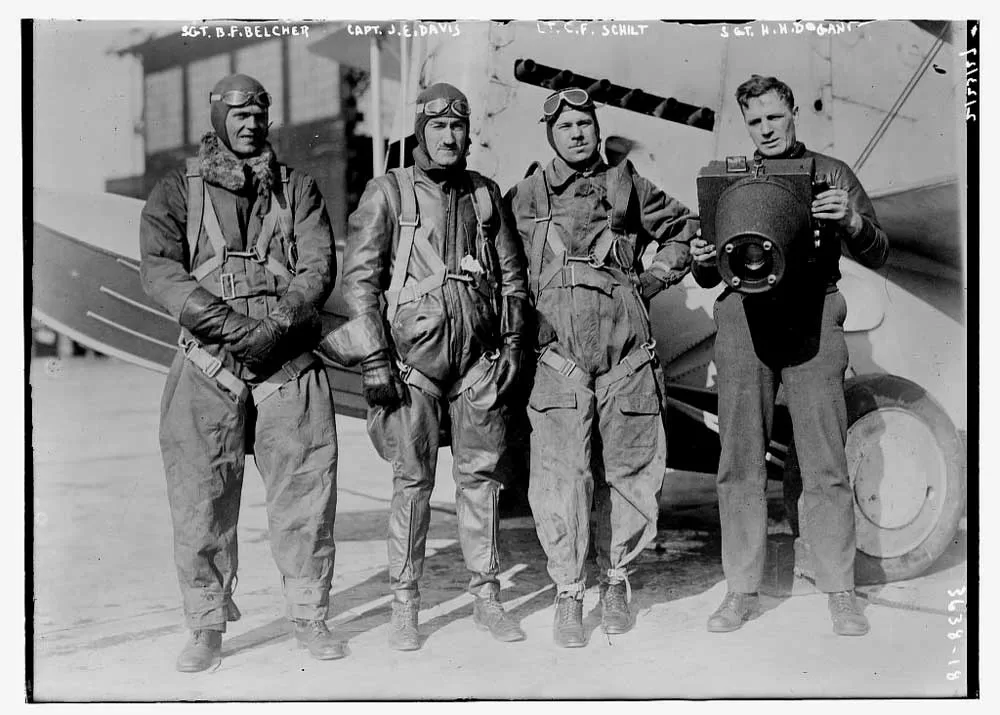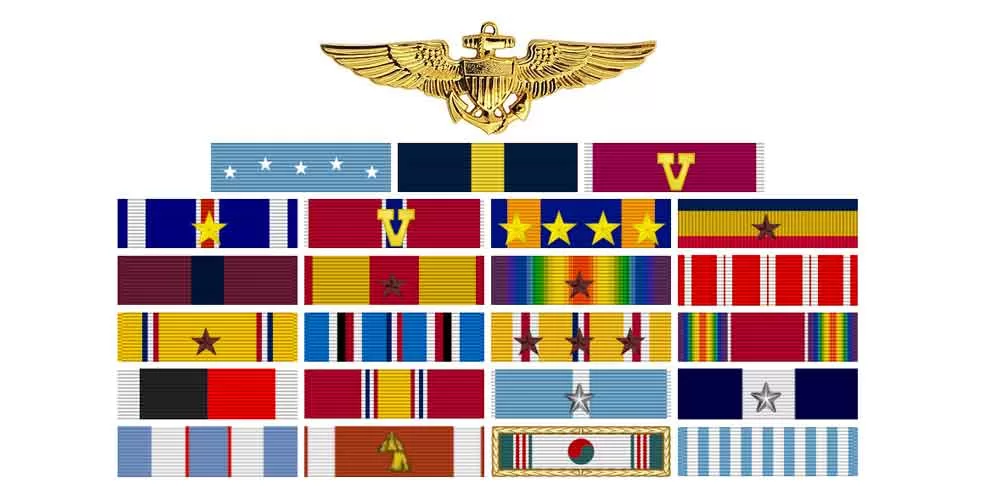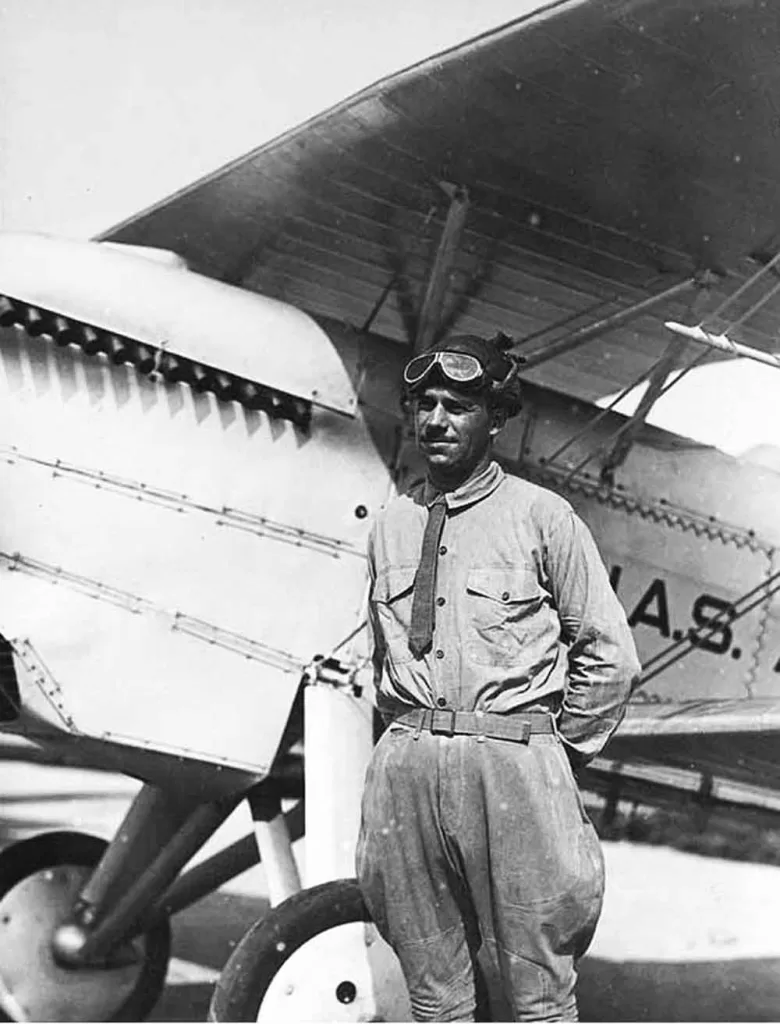The aviation chronicles are adorned with luminous names that have shaped the trajectory of human flight. But in the vast sky of these achievements, some stars, though shining just as brightly, remain lesser known. Christian Franklin Schilt, a key figure in the early days of aviation, is one such star.
Born in 1895 in Richland County, Illinois, Schilt grew up with an innate curiosity about the world around him. As a young boy, he was known to climb trees, not just for the thrill but to get a ‘bird's eye view' of his surroundings. It's perhaps no surprise that, as a man, he would strive to view the world from an even greater height—the cockpit of an aircraft.
Having joined the United States Marine Corps in 1917, his transition to aviation was not just a career choice but a personal passion. In 1923, when he was designated a Naval Aviator, aviation was still in its infancy. Pilots during this era were akin to modern-day astronauts, pushing boundaries and venturing into the unknown.

Throughout the 1920s, Schilt brushed shoulders with aviation greats like Charles Lindbergh and Amelia Earhart. These interactions further fueled his drive. While Lindbergh and Earhart pursued records and made headlines, Schilt was deeply entrenched in molding aviation's tactical and strategic potential for the Marines.
The Quilali rescue mission of 1928 brought him to the limelight, albeit briefly. His audacious flight into hostile territory to evacuate trapped Marines highlighted his bravery and the aircraft's potential in combat scenarios. This mission earned him the Medal of Honor, solidifying his place in the annals of military history.
Yet his vision for aviation extended beyond individual accolades. Throughout the 1930s, as global tensions simmered, Schilt recognized the importance of integrating aviation into broader military strategies. He participated in numerous military exercises, often collaborating with international counterparts to understand the global dimension of aerial warfare.
World War II was the proving ground for many of Schilt's theories. Marine aviation played a pivotal role in the Pacific, and behind many successful operations were doctrines and strategies that Schilt had championed a decade earlier.

But beyond the battles and strategies lay Schilt's profound impact on the individuals he mentored. Many young pilots played crucial roles in the post-war era thanks to his leadership, ensuring that Marine Corps aviation remained at the forefront of tactical and technological advancements.
His legacy was immeasurable as the curtain fell on Schilt's active service in 1957. His vision, bravery, and unwavering commitment to Marine aviation set the course for future generations.
Reflecting on such luminaries offers more than just historical insights. It presents a story of passion, vision, and the relentless pursuit of excellence. Christian F. Schilt's life serves as a beacon, reminding us of the boundless potential of human spirit and endeavor.
His influence on Marine aviation spanned multiple aspects. His beliefs, actions, and legacies suggest several vital strategies and philosophies:

1. Close Air Support: Schilt believed in the integral role of aviation in supporting ground forces. His experiences and successes highlighted the efficacy of aircraft in assisting troops on the ground, whether for combat, reconnaissance, or evacuation.
2. Integration of Air and Ground Operations: A core tenet of Marine doctrine, which Schilt played a role in reinforcing, is the tight integration of air and ground operations. He was a proponent of ensuring that aerial missions were closely coordinated with the needs and positions of ground forces. This seamless integration would define the Marine Corps' approach to warfare.
3. Adaptability and Versatility: The Quilali rescue mission is a testament to Schilt's belief in the adaptability of aircraft to varied tasks. In a time when aviation's role in combat was still being defined, Schilt showcased that aircraft could be instrumental in non-traditional roles, such as medevac operations under fire.
4. Continuous Training and Preparedness: In his leadership roles, Schilt emphasized the importance of regular training for Marine aviators. As aviation technology and tactics evolved rapidly, he understood the need for aviators to constantly update and prepare for new challenges.
5. Innovative Tactical Employment: Schilt's career spanned a period of rapid technological change in aviation. He was keenly aware of the need to adapt tactics to the capabilities of new aircraft and technologies. This meant using aircraft in traditional roles and seeking innovative ways to employ them in various combat scenarios.
6. Doctrine Development Through Experience: Schilt's approach was grounded in real-world experience. He believed in deriving tactical and strategic insights from field operations, ensuring that doctrines were theoretical and based on combat realities.
While these points encapsulate some philosophies and strategies Schilt embodied and promoted, it's essential to understand that military principles are often collaborative efforts. Schilt's contributions were part of a more significant collaborative endeavor within the Marine Corps to define and refine the role of aviation in modern warfare.
In a realm where luminaries like Lindbergh and Earhart are household names, Christian F. Schilt is an unsung hero whose profound impact on aviation still reverberates today. His life wasn't merely about flying; it was a living blueprint of courage, vision, and innovation that forever altered how we think about air-ground integration in military strategy. From audacious rescue missions to transformative wartime doctrines, Schilt's indelible legacy challenges us to continuously strive for excellence, adapt to new frontiers, and recognize that every individual can help shape history. Let his journey serve as a compelling reminder that the sky is not the limit but the beginning of boundless possibilities.
Although not centered on Christian F. Schilt, these books offer a thorough insight into Marine aviation history and its role in military operations.
- Fifty-Three Days on Starvation Island: The World War II Battle That Saved Marine Corps Aviation
- America's Few: Marine Aces of the South Pacific
- The Fighting Corsairs: The Men of Marine Fighting Squadron 215 in the Pacific during WWII
- Marine Air: The History of the Flying Leathernecks in Words and Photos
- The Marine Corps Way of War: The Evolution of the U.S. Marine Corps from Attrition to Maneuver Warfare in the Post-Vietnam Era
- The Lost Pilots: The Spectacular Rise and Scandalous Fall of Aviation's Golden Couple




